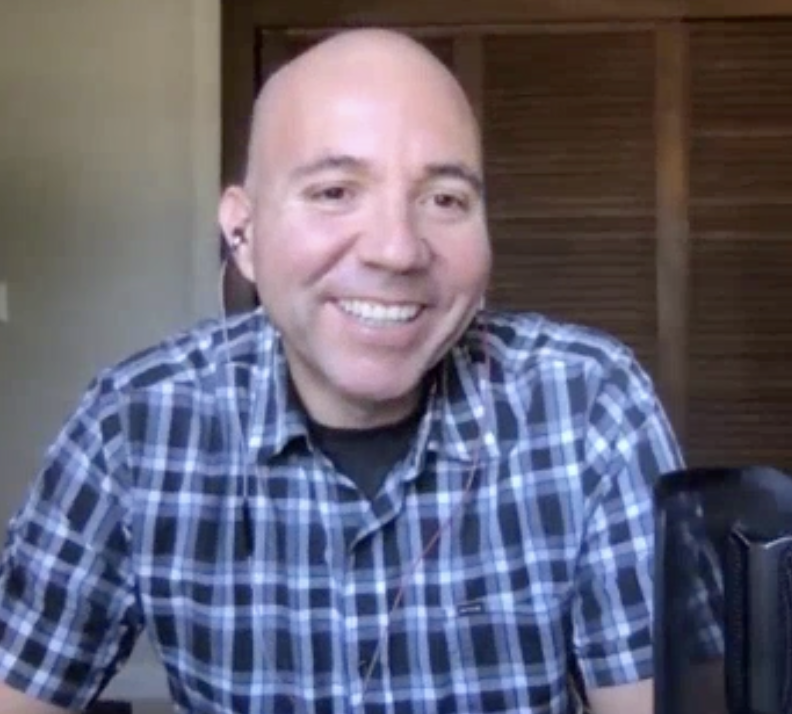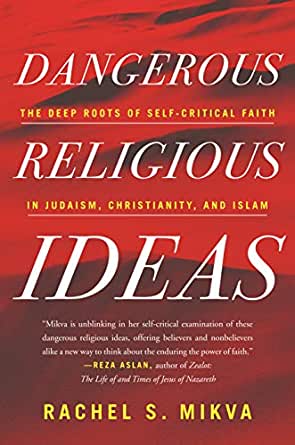 The Bible can provide us with encouragement and wisdom, but also pain and sadness.
The Bible can provide us with encouragement and wisdom, but also pain and sadness.
There are exhortations to love our neighbors and examples on ways to care for the hurting, but also Biblical passages of violence and oppression.
Our understanding of these Biblical texts will vary depending on how we’ve heard them interpreted by the faith traditions we’ve been exposed to.
Sadly, the Bible has been used to defend slavery, oppress women, marginalize our LGBTQ+ community, and even justify violence. It’s no wonder why so many of us might want to avoid reading our Bible altogether.
In “Dangerous Religious Ideas: The Deep Roots of Self-Critical Faith in Judaism, Christianity and Islam,” Rabbi Rachel S. Mikva reveals how different faith traditions have discussed and debated their sacred texts — and how their interpretations on these texts continue to evolve. She also addresses some of the dangerous ideas that our sacred texts have expressed.
She shares why it’s important for us to be self-critical readers of our sacred literature, which means asking the hard questions and dialoguing with others about ways to understand these texts, especially conversations with those outside our own religious traditions.
In this podcast, Rabbi Rachel Mikva discusses ways to approach these dangerous sacred texts. You can subscribe or download this episode on iTunes, Spotify, Google Podcasts or Stitcher. You can also watch or subscribe to the video series on YouTube.
Here’s an overview of our conversation with Dr. Mikva:
EP11: Dangerous Religious Ideas, Sola Scriptura & Texts of Terror
Rabbi Mikva talks with us about why she has been studying and teaching courses on dangerous religious ideas, ways for us to cultivate empathy for each other’s religious traditions, the challenges of sola scriptura (and self-directed Bible study), the role of doubt, what the commandment about “eye for an eye” really means, and ways texts of terror have been use to oppress (or even justify violence) toward women and marginalized communities.
Listen to the episode:
Some takeaways from these conversations:
Developing a self-critical faith and questioning our sacred texts is key to spiritual growth. She writes “we are inescapably affected by sacred text and the ways it has been understood; our religious ideas of today are shaped by our spiritual genealogy. In exploring the surplus of meaning embedded in scripture and tradition, expanding our understanding of the past, we also open new possibilities for the future.”
Biblical interpretation has evolved over time by different religious traditions — and there isn’t one way to understand our sacred books. Rabbi Mikva says “Criticism is not blasphemy. Dislodging assumptions about meaning and the history of interpretation resists the binary reductionism of the digital age that allows people to decide that religion is all good or bad.
Find ways to support and love marginalized communities who have been traumatized by certain Biblical interpretations. Sadly, sacred texts have been used to traumatize our LGBTQ community, oppress women and even endorse slavery. It’s no wonder why many people have no interest in reading a Bible. Let’s work on developing more empathy for those who have been hurt by sacred books and find ways to love these groups more. We also need to become more vocal about letting others know about other scholarly interpretations of these texts.
Video of our conversation:
Rabbi Rachel S. Mikva
Rachel S. Mikva serves as the Rabbi Herman E. Schaalman Chair in Jewish Studies and the Senior Faculty Fellow of the InterReligious Institute at Chicago Theological Seminary. Dr. Mikva served as a congregational rabbi for thirteen years before returning to academia. Her research and teaching focus on interpretation of the Hebrew Bible in various times and places, exploring how the ideas both shape and reflect the societies in which they unfold.
Her courses and research address a range of Jewish and comparative studies, with a special interest in the intersections of scripture, culture and ethics. She earned her A.B. at Stanford University, M.A. Rabbinic Ordination at Hebrew Union College-Jewish Institute of Religion and PhD at Jewish Theological Seminary. Follow her on Twitter.
Here are some of my favorite quotes from the book:
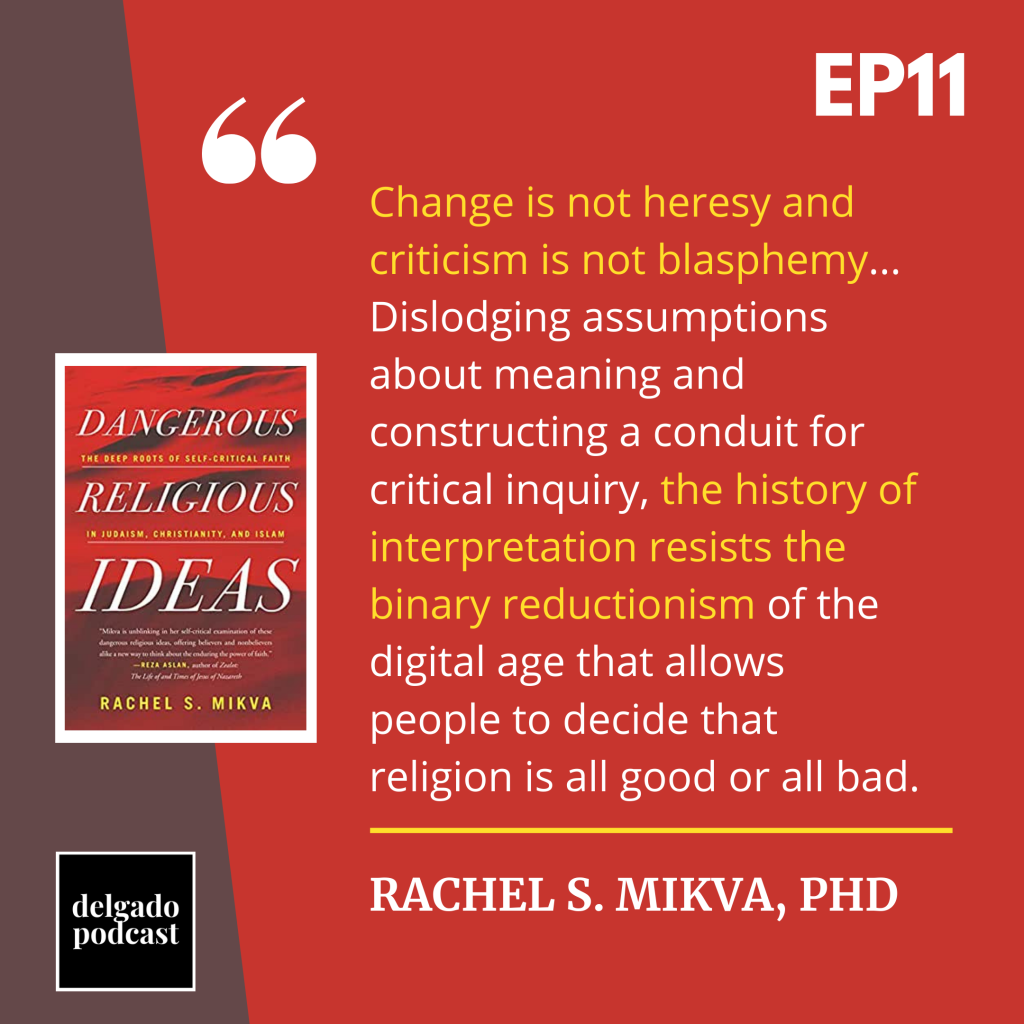
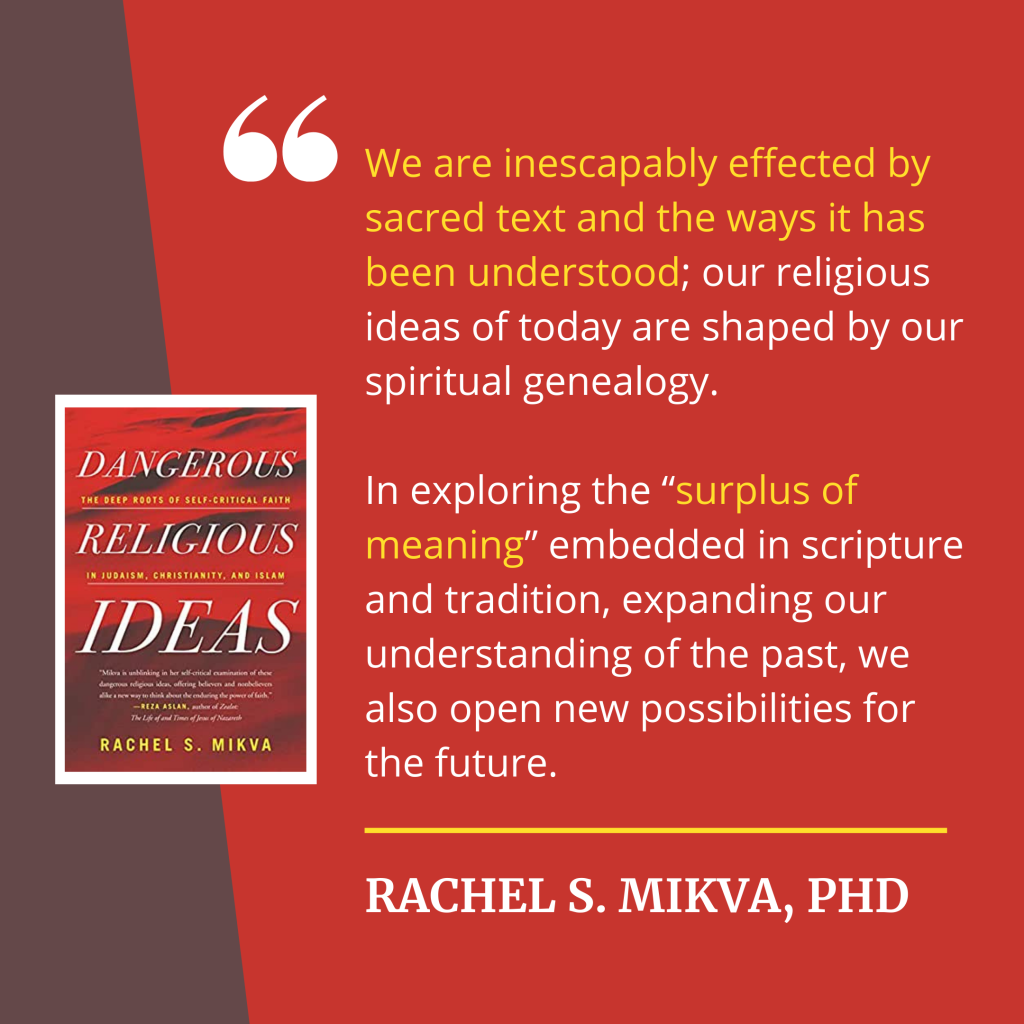
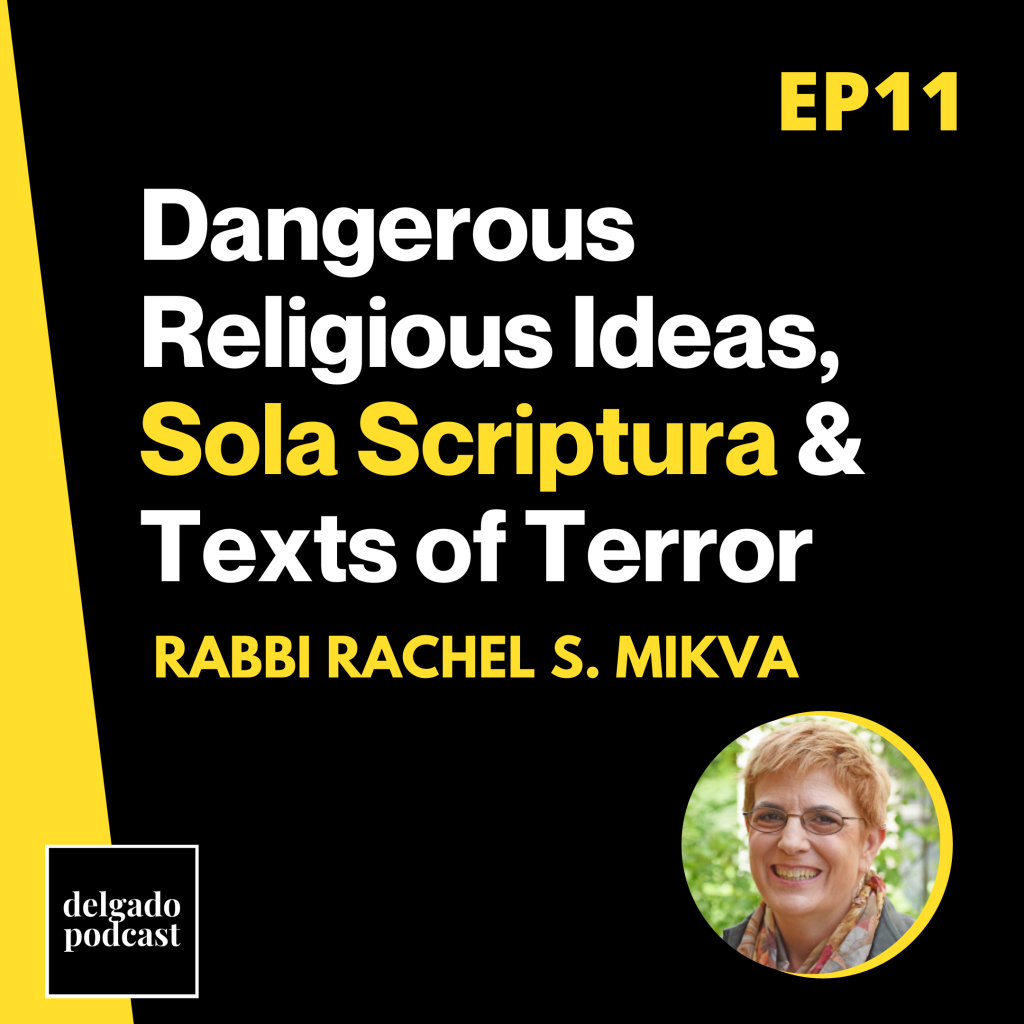
Check out more episodes from the Delgado Podcast.
To keep up with this weekly podcast series featuring academics, authors and artists who challenge us, you can get updates on Instagram and Twitter or subscribe to the video interviews on YouTube. Reach out with any suggestions for authors to feature, topics to discuss and share your thoughts on an episode.

